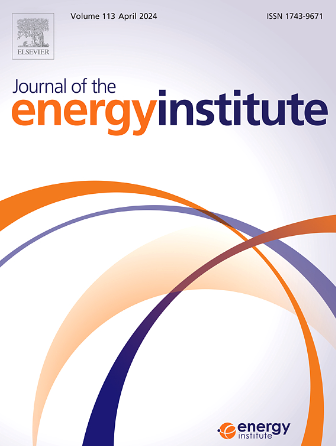Entrainment rate predictions of axis-symmetric non-swirling jets using free-jet-theory, Reynolds-averaged Navier-Stokes modelling and large-eddy-simulations resolved up to Kolmogorov scale
IF 5.6
2区 工程技术
Q2 ENERGY & FUELS
引用次数: 0
Abstract
Jet entrainment - relevant to mixers, sprays and combustion technologies - has been the subject of this work. We limit our considerations to air jets issued from convergent nozzles of diameter smaller than 25.4 mm, the nozzle exit Reynolds number in the range 30,000 to 100,000 and Mach numbers not exceeding 0.4. The emphasis is on jet self-similarity region (60 < x/d0 < 210) and the key question is with which accuracy can Computational Fluid Dynamics (RANS and LES) and free-jet theory predict jet entrainment. Seven jets have been considered.
The realizable k-є model has outperformed the other models and provides the entrainment predictions within ±6 % margin from the measured data. The standard k-є and the Shear-Stress Transport (SST) k-ω models deliver entrainment figures which are larger than the measured data by 22 % – 24 % whilst predictions of either the Reynolds Stress Model (RSM) or Re-Normalization Group (RNG) k-є models can be off (too large) by as much as 34 % and 40 %, respectively. Such a clarity in classification of turbulence models has been obtained after minimization of numerical related errors to a degree which was not achievable in the past. The Panchapakesan&Lumly's jet has been computed using the Large Eddy Simulations with the filter size of the order of Kolmogorov scale throughout the jet e.g. at the inlet, potential core and the far field. Excellent predictions of the jet spread rate, velocity profiles and the entrainment have been obtained at the expense of huge computational resources.
The well-known engineering correlation provides entrainment figures that are by 10 % or less larger than the measured values.
利用自由射流理论、雷诺平均纳维-斯托克斯模型和解析到科尔莫哥洛夫尺度的大涡流模拟预测轴对称非旋转射流的夹带率
与混合器、喷雾和燃烧技术相关的喷流夹带是这项工作的主题。我们的研究对象仅限于直径小于 25.4 毫米、喷嘴出口雷诺数在 30,000 到 100,000 之间、马赫数不超过 0.4 的会聚喷嘴喷出的气流。重点是射流自相似性区域(60 < x/d0 < 210),关键问题是计算流体动力学(RANS 和 LES)和自由射流理论预测射流夹带的精确度。可实现的 k-є 模型的性能优于其他模型,其预测结果与测量数据的误差在 ±6% 以内。标准 k-є 和剪应力传输(SST)k-ω 模型提供的夹带数据比测量数据大 22% - 24%,而雷诺应力模型(RSM)或重归一化组(RNG)k-є 模型的预测偏差(过大)分别高达 34% 和 40%。如此清晰的湍流模型分类是在最大程度地减少了数值相关误差之后获得的,这在过去是无法实现的。Panchapakesan&Lumly 的喷流是利用大涡流模拟计算的,整个喷流(如入口、势核和远场)的滤波器大小为 Kolmogorov 级。著名的工程相关系数 m˙e/m0˙=0.32(x/d0)可提供比测量值大 10% 或更小的夹带数据。
本文章由计算机程序翻译,如有差异,请以英文原文为准。
求助全文
约1分钟内获得全文
求助全文
来源期刊

Journal of The Energy Institute
工程技术-能源与燃料
CiteScore
10.60
自引率
5.30%
发文量
166
审稿时长
16 days
期刊介绍:
The Journal of the Energy Institute provides peer reviewed coverage of original high quality research on energy, engineering and technology.The coverage is broad and the main areas of interest include:
Combustion engineering and associated technologies; process heating; power generation; engines and propulsion; emissions and environmental pollution control; clean coal technologies; carbon abatement technologies
Emissions and environmental pollution control; safety and hazards;
Clean coal technologies; carbon abatement technologies, including carbon capture and storage, CCS;
Petroleum engineering and fuel quality, including storage and transport
Alternative energy sources; biomass utilisation and biomass conversion technologies; energy from waste, incineration and recycling
Energy conversion, energy recovery and energy efficiency; space heating, fuel cells, heat pumps and cooling systems
Energy storage
The journal''s coverage reflects changes in energy technology that result from the transition to more efficient energy production and end use together with reduced carbon emission.
 求助内容:
求助内容: 应助结果提醒方式:
应助结果提醒方式:


